Spoonfuls of Sustainability: Choosing Non-Toxic Alternatives to Plastic Baby Utensils
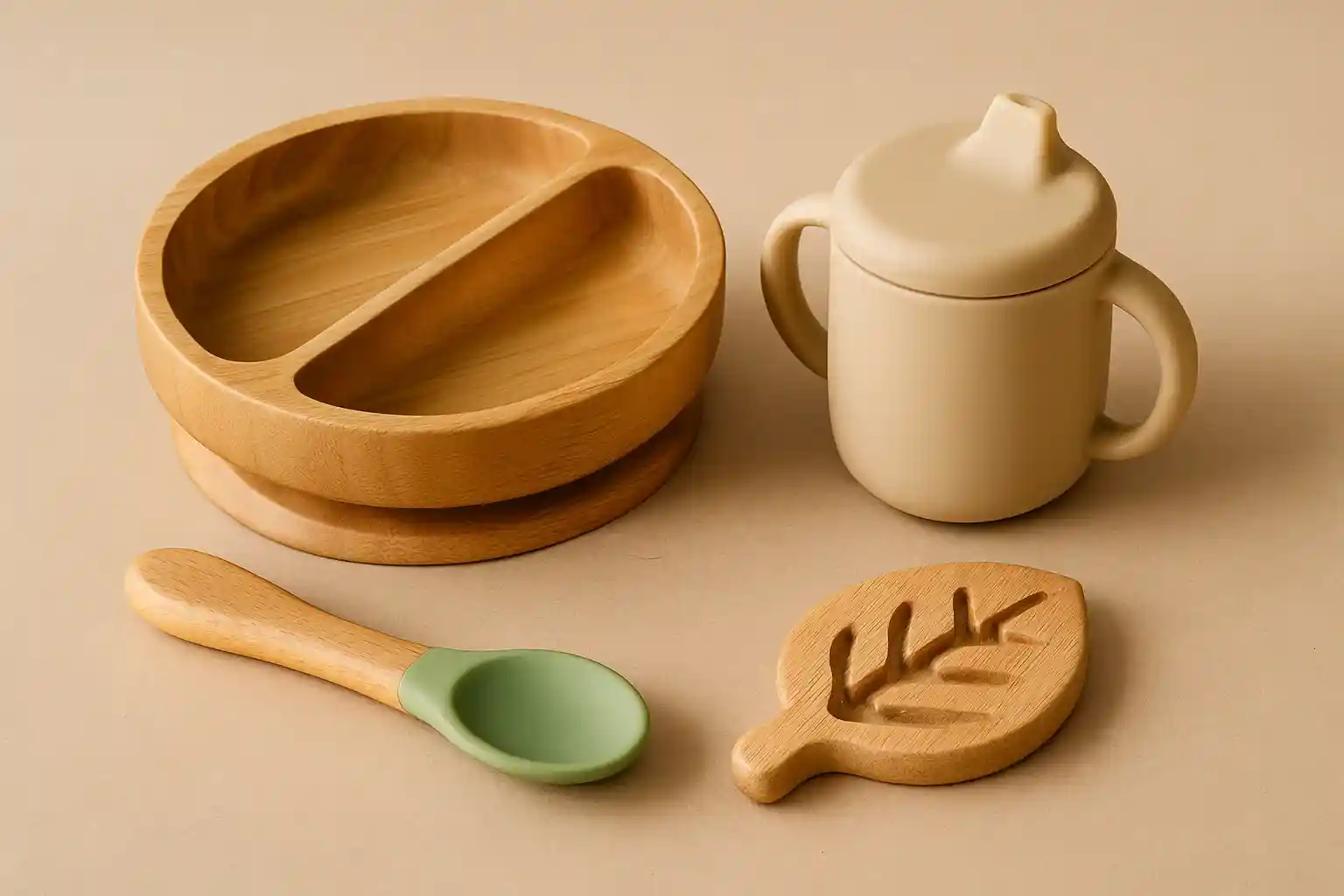
The transition to solid foods is a significant milestone in a baby's development, often accompanied by the introduction of tiny spoons and forks. While plastic baby utensils are widely available, their use raises concerns about potential chemical leaching and the contribution of plastic to our environment. As babies explore new textures and tastes, they inevitably mouth and chew on their utensils, increasing the potential for ingesting microplastics and other synthetic materials. For environmentally and health-conscious parents, opting for non-toxic and sustainable alternatives for feeding their little ones is a crucial step towards a healthier and more responsible approach to mealtime.
The concerns surrounding plastic baby utensils stem from their composition and the potential for degradation over time. Even BPA-free plastics can leach other chemicals, especially when exposed to heat or repeated washing. The small size and frequent use of these utensils mean they can break down, releasing microplastics that can be ingested by babies. Furthermore, the vast number of plastic baby utensils produced and eventually discarded contributes significantly to plastic waste, persisting in landfills for centuries. Recognizing these issues, many parents are seeking safer, more natural, and less wasteful options for feeding their infants and toddlers.
Fortunately, a variety of excellent non-toxic and sustainable materials offer viable replacements for plastic baby utensils. By choosing stainless steel utensils, opting for the natural warmth of bamboo spoons, or selecting silicone-free options made from materials like medical-grade silicone or plant-based bioplastics, parents can provide safe and durable feeding tools for their babies while minimizing their environmental footprint. These alternatives often boast ergonomic designs for little hands and offer a more mindful approach to mealtime.
Feeding with Intention: Exploring Non-Toxic Baby Utensil Alternatives
Moving beyond the potential concerns of plastic baby utensils reveals a world of safer and more environmentally conscious options for nourishing your little one:
Stainless Steel Utensils: Durable and Hygienic
Stainless steel baby utensils offer a robust, non-toxic, and hygienic alternative to plastic. Made from food-grade stainless steel, these utensils are durable, resistant to bacteria, and won't leach harmful chemicals into food. They are also easy to clean and can withstand repeated washing and sterilizing. Brands like Avanchy often offer stainless steel baby utensils with silicone tips for added softness and grip, combining safety and functionality.
Bamboo Spoons: Natural Warmth and Biodegradability
Bamboo spoons provide a naturally warm, lightweight, and biodegradable option for feeding babies. Bamboo is a fast-growing and renewable resource that requires minimal pesticides and fertilizers. Bamboo spoons are gentle on a baby's gums and offer a smooth, comfortable feeding experience. Brands like Bamboo Bamboo specialize in creating sustainable baby feeding products from bamboo, offering a natural and eco-friendly choice.
Silicone-Free Options: Safe and Durable Alternatives
While some silicone is considered a safer alternative to certain plastics, parents seeking completely silicone-free options can explore utensils made from medical-grade TPE (thermoplastic elastomer) or plant-based bioplastics. These materials are often BPA-free, phthalate-free, and PVC-free, offering a non-toxic and durable feeding tool for babies. Re-Play offers a range of colorful and durable baby utensils made from recycled milk jugs, providing another safe and sustainable alternative to traditional plastic.
Nurturing a Sustainable Start: Mindful Choices for Mealtime
By consciously choosing non-toxic alternatives like stainless steel utensils, bamboo spoons, or silicone-free options for feeding your baby, parents can minimize their child's exposure to potentially harmful chemicals and reduce plastic waste. Opting for durable and sustainably sourced materials ensures a safer and more environmentally responsible approach to mealtime.
Related Blogs
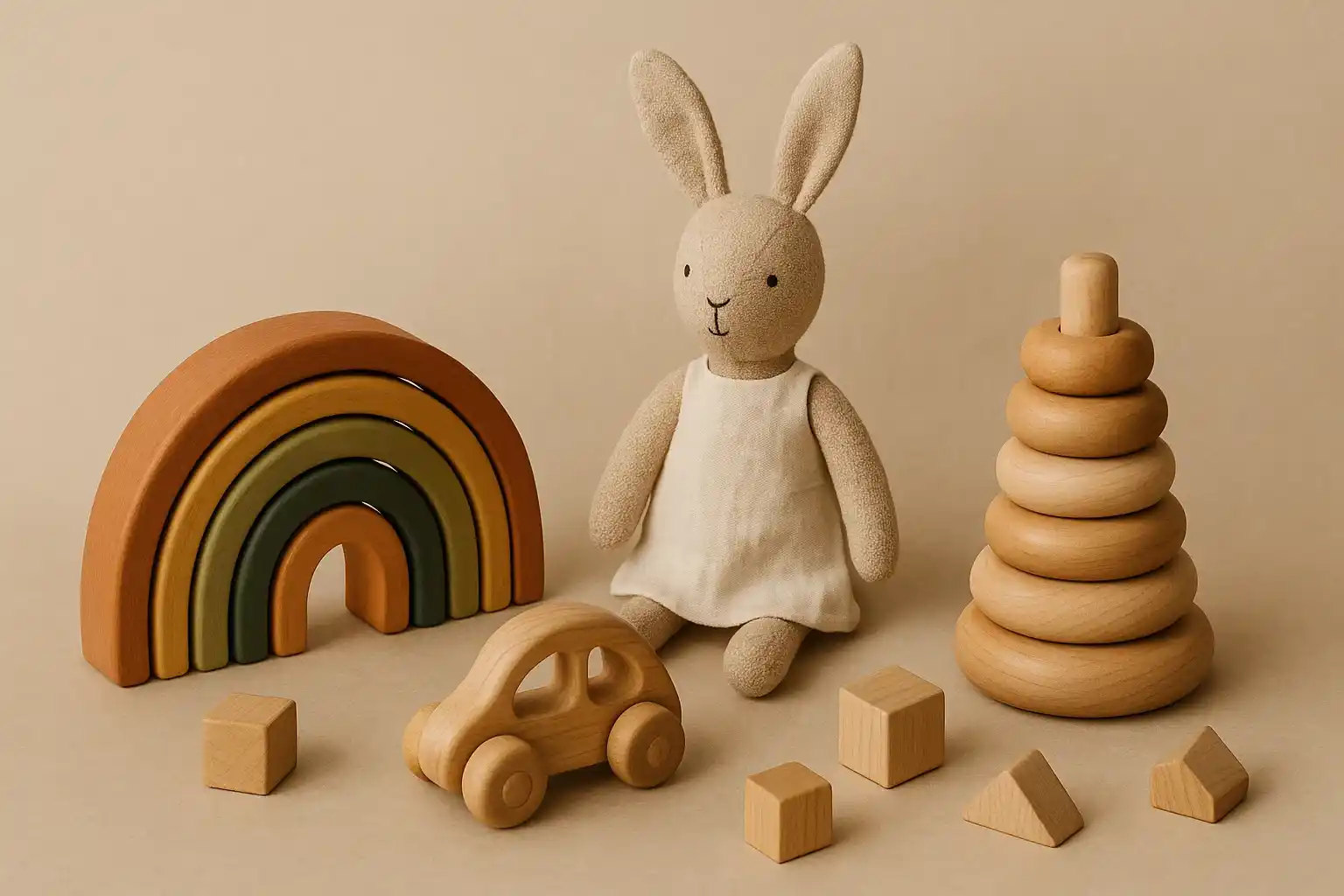
Unplug and Imagine: Choosing Battery-Free Toys for Engaging and Sustainable Playtime
Foster imagination and save energy with manual musical toys, story books, and nature play.
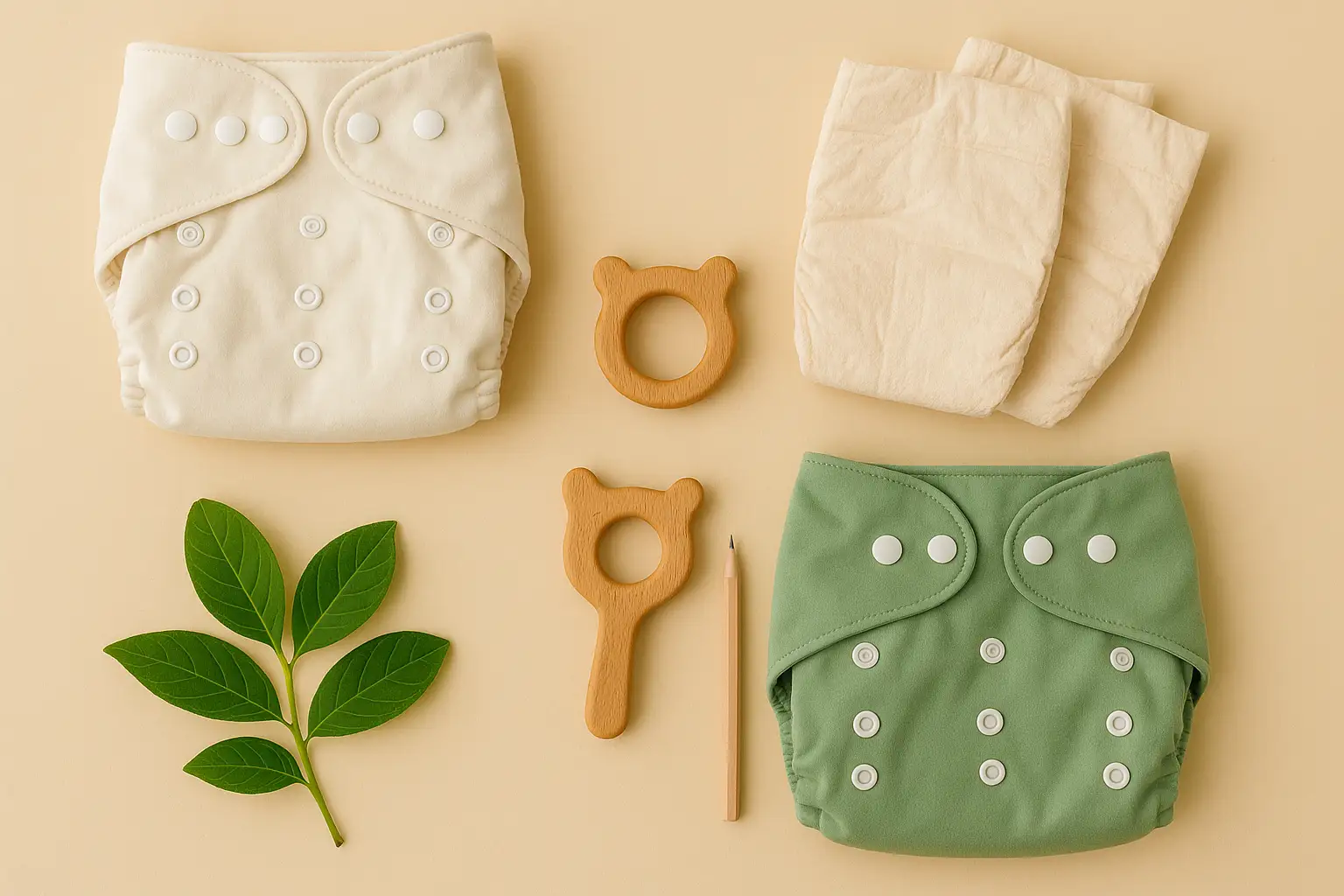
The Great Diaper Debate: Navigating Cloth vs. Eco-Disposables for a Sustainable Start
Comparison of sustainable alternatives to help you make informed decisions.
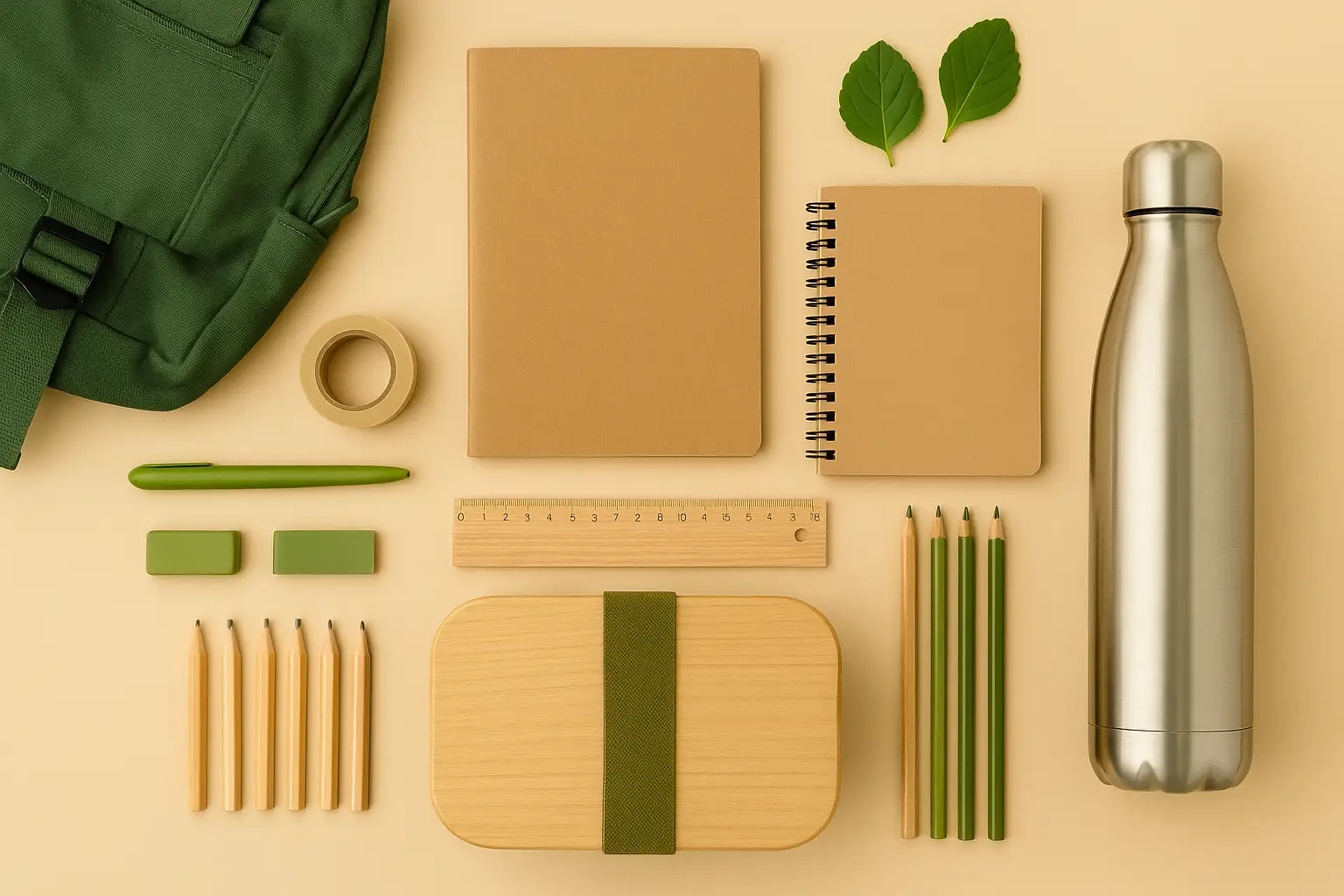
Equipping Young Minds, Protecting Our Planet: Sustainable School Supplies Kit
Insights on creating a sustainable school supplies kit in a sustainable way.
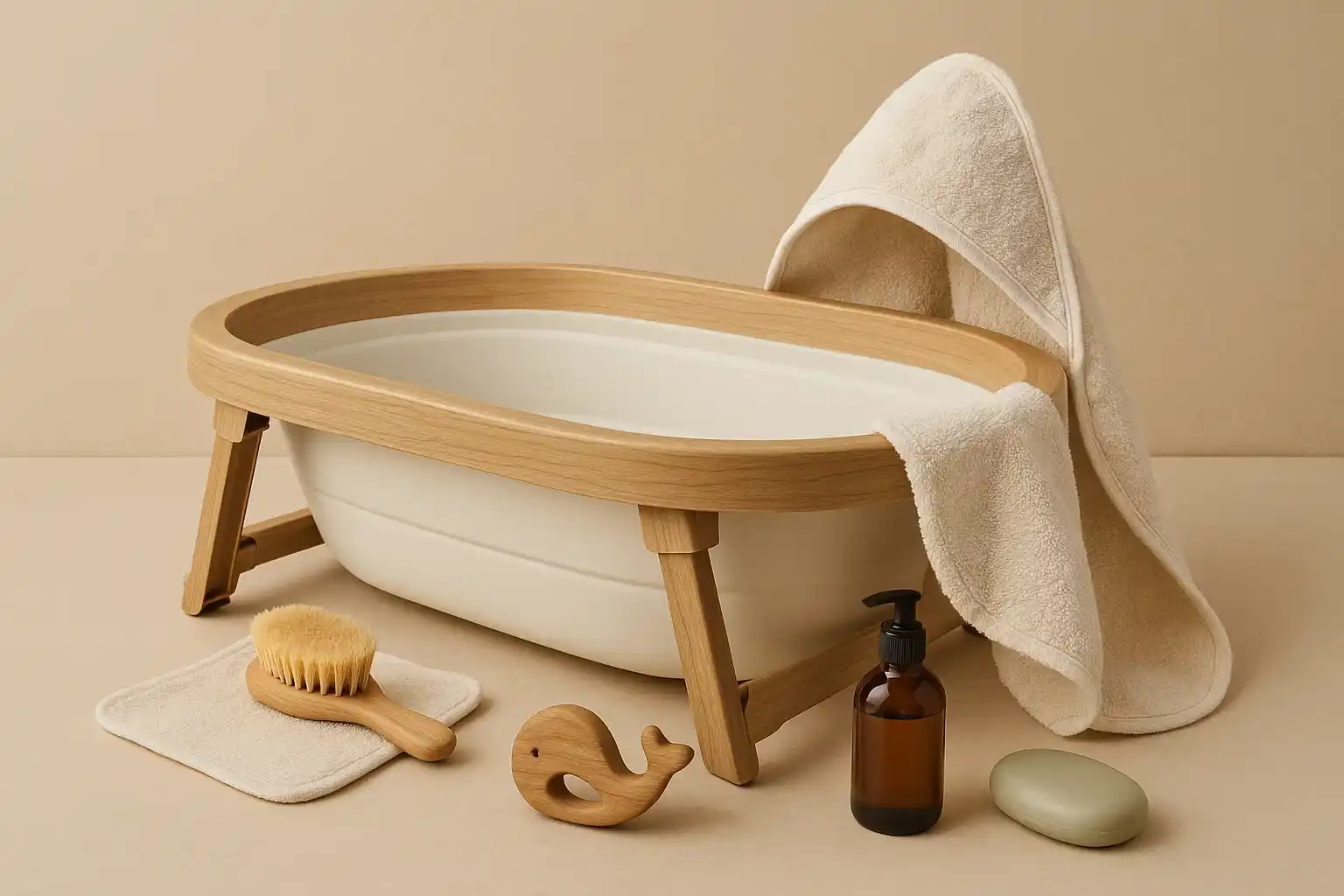
Bathtime, Simplified: Eco-Friendly Alternatives to Bulky Plastic Baby Baths
Reduce manufacturing impact and clutter with sink bath seats, inflatable tubs, or repurposed containers.
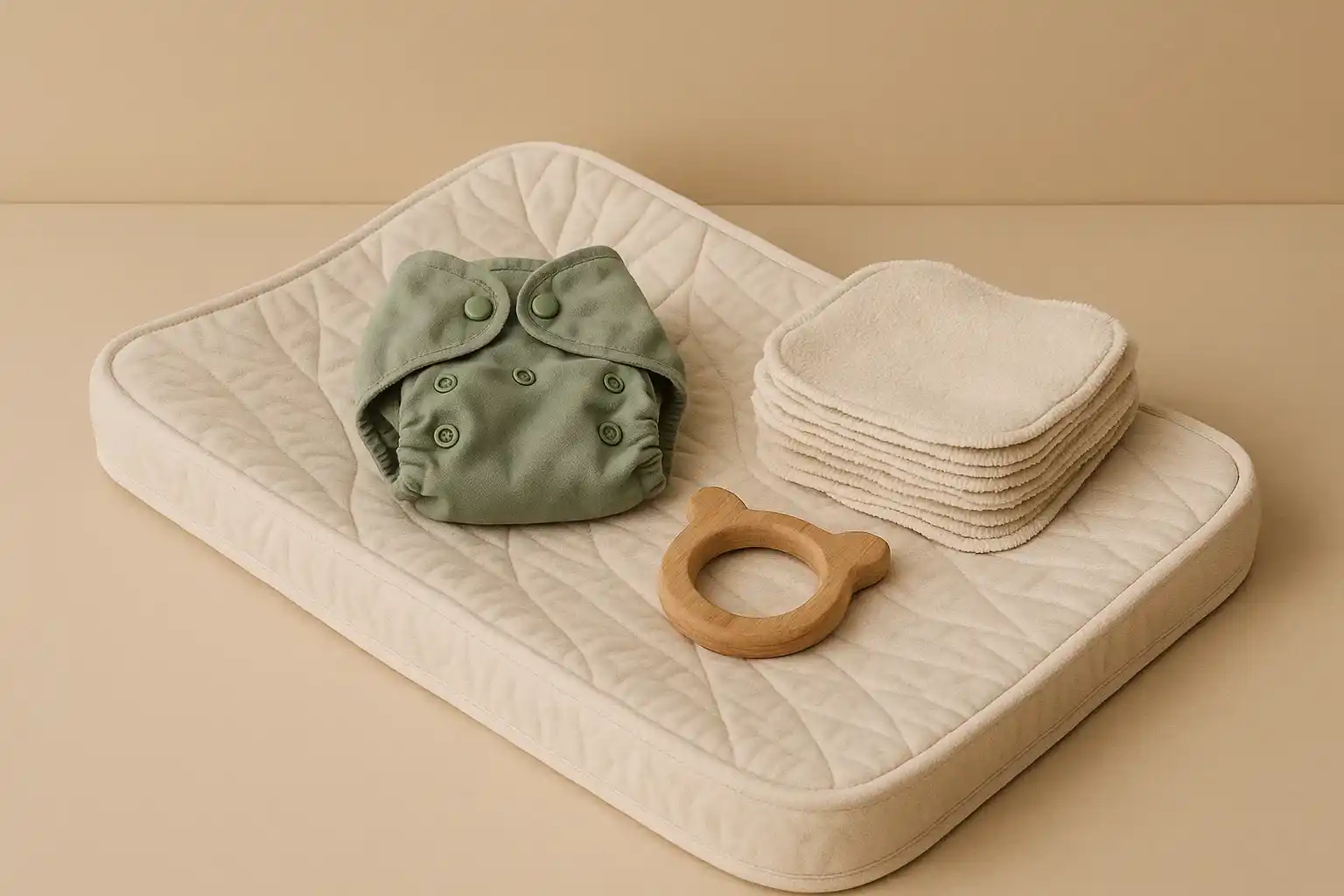
A Gentle Foundation: Choosing Eco-Friendly and Non-Toxic Changing Mats for Your Baby
Opt for organic cotton, cork-based, or recycled textile changing mats free from PVC and phthalates.
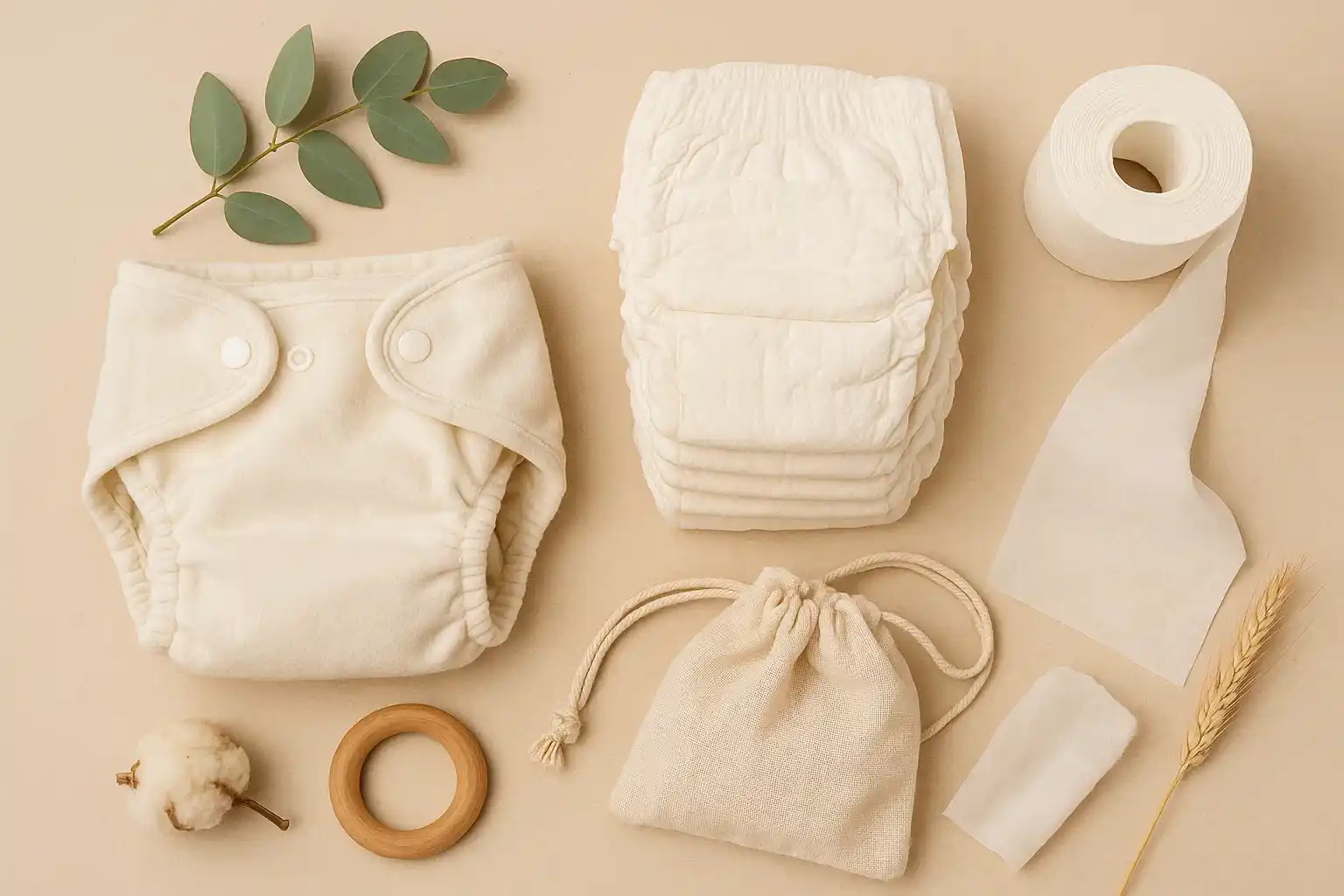
Diapering with Intention: Exploring Eco-Friendly Alternatives to Disposable Diapers
Cut down drastically on landfill waste with cloth, compostable, or hybrid diaper systems.
Stay in the Loop
Get tips and insights tailored to your interests — no spam, just sustainability.